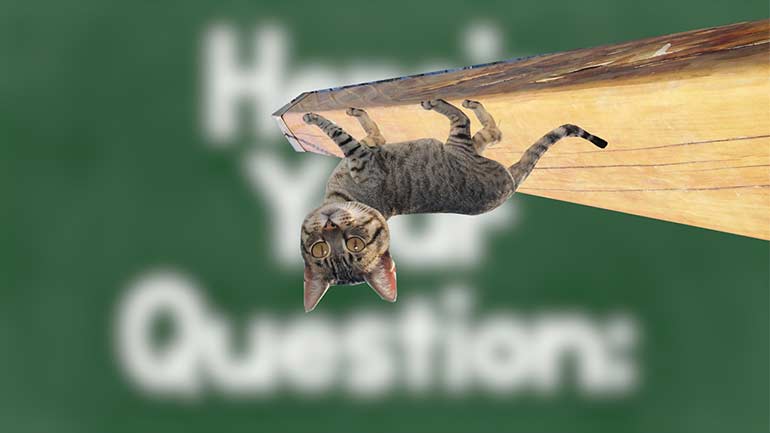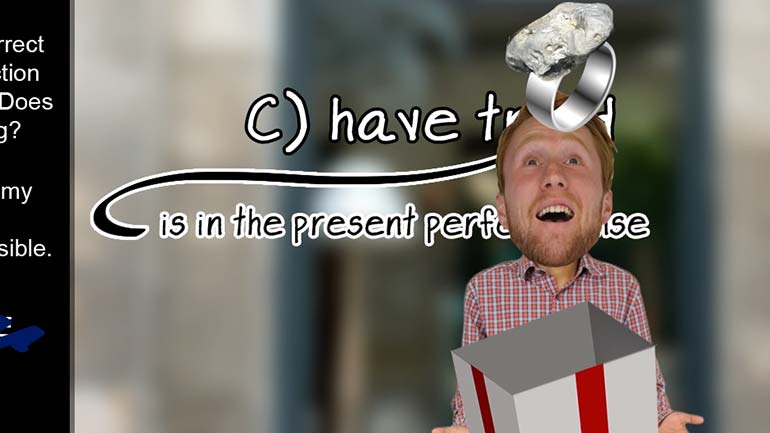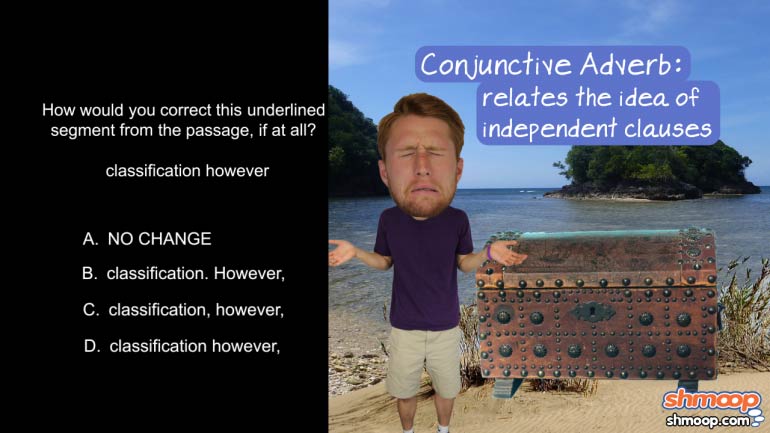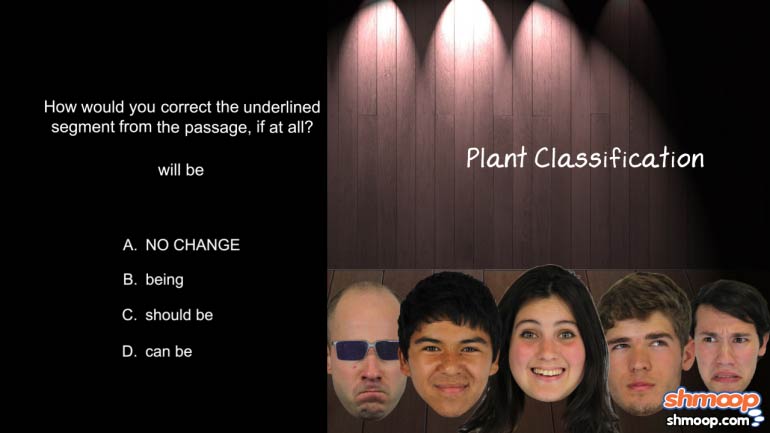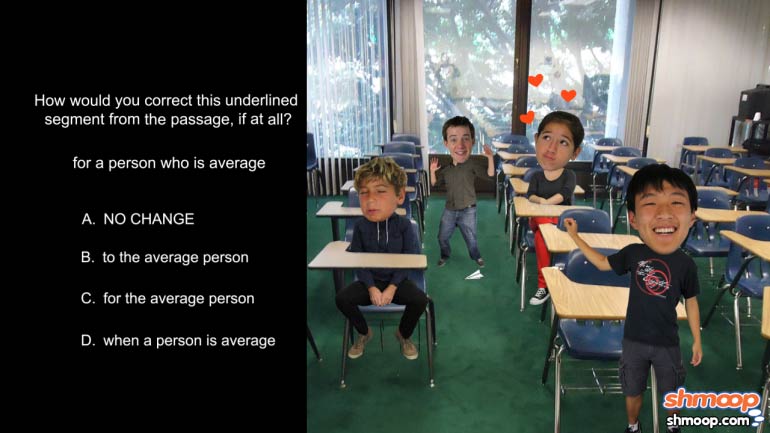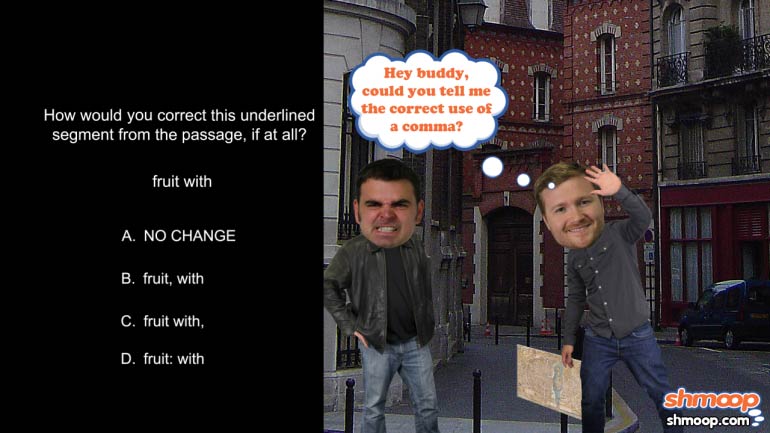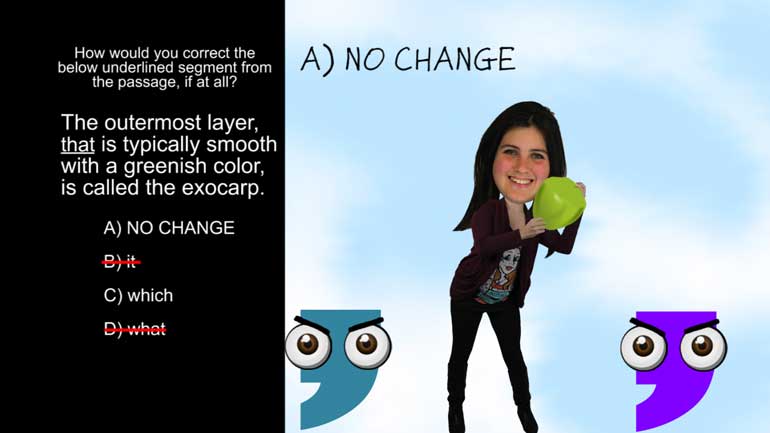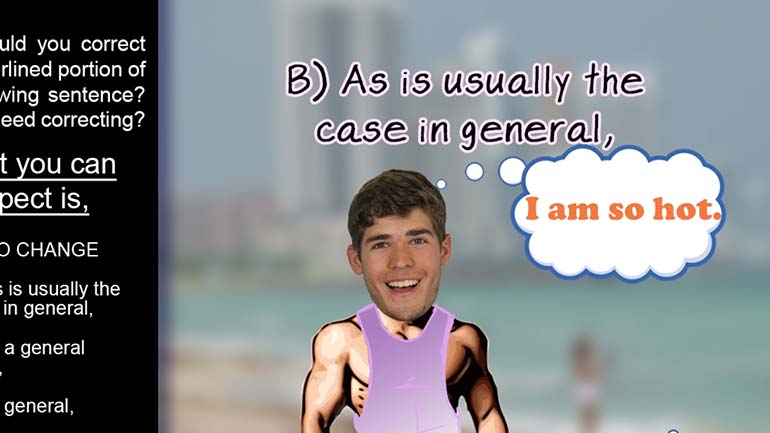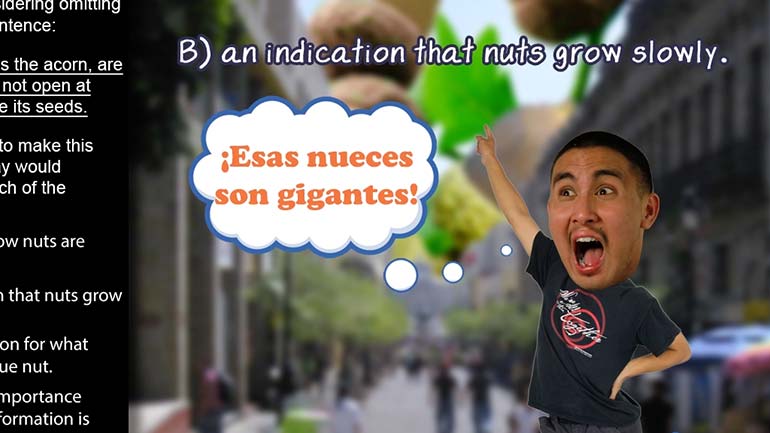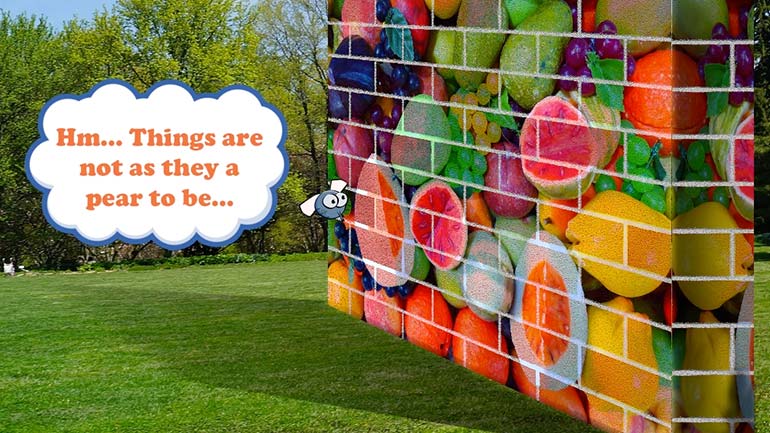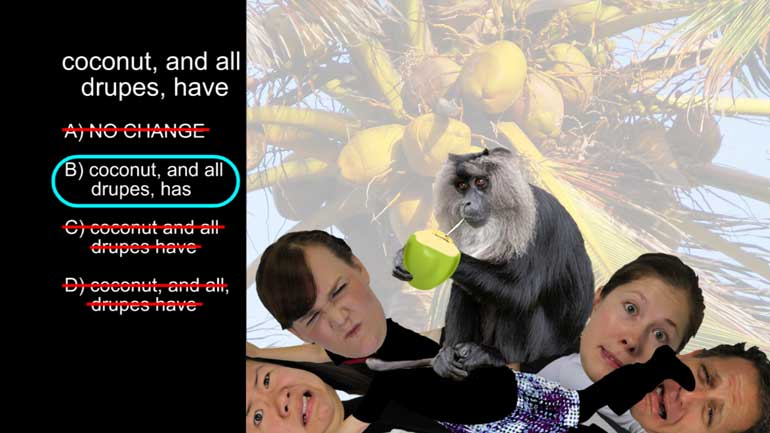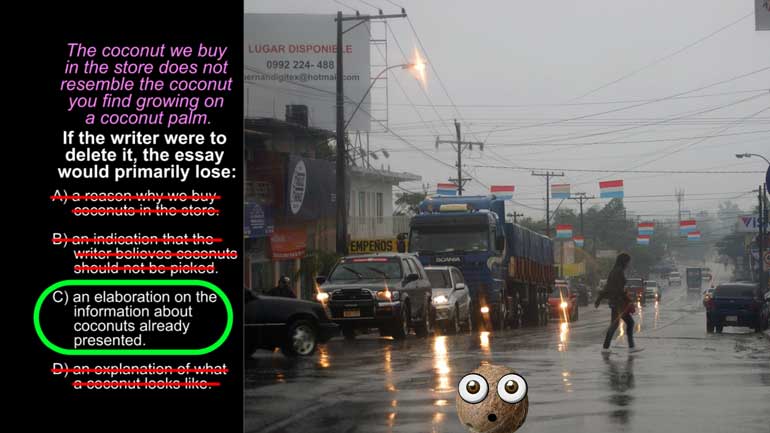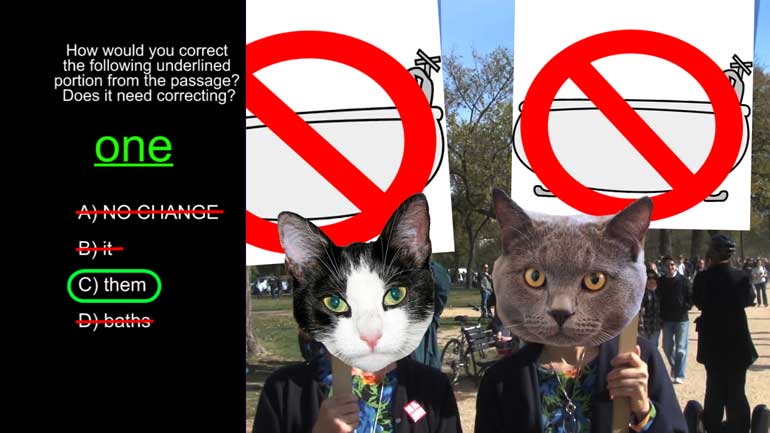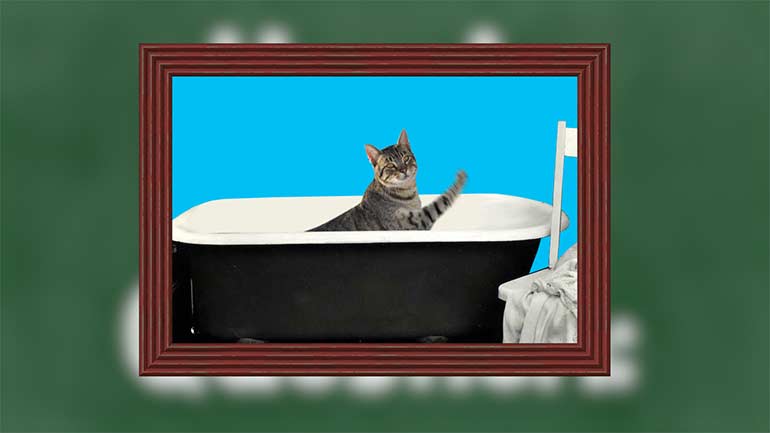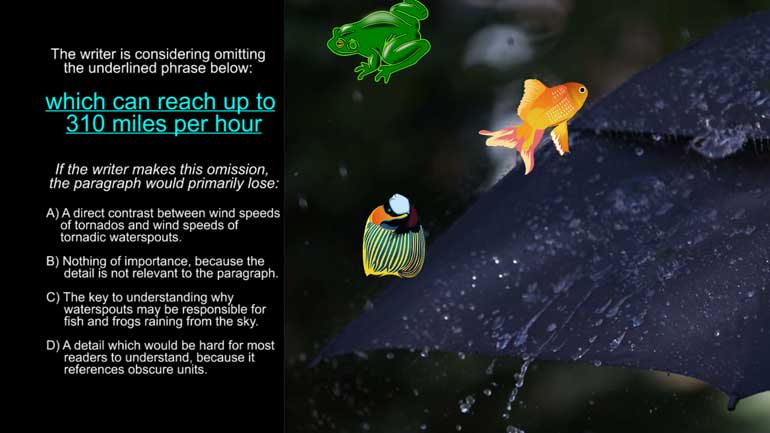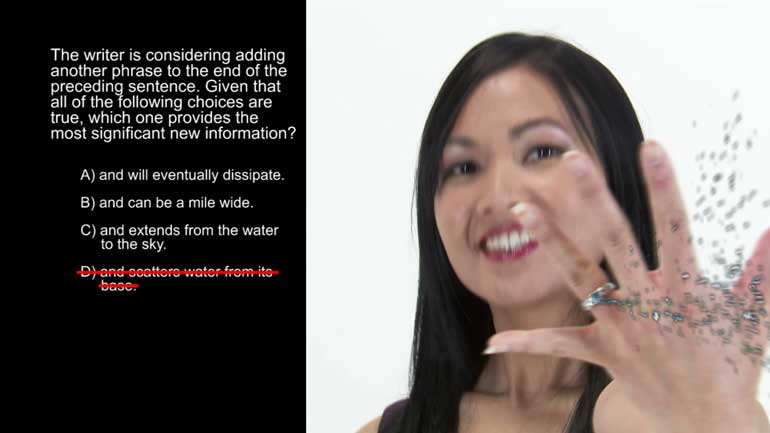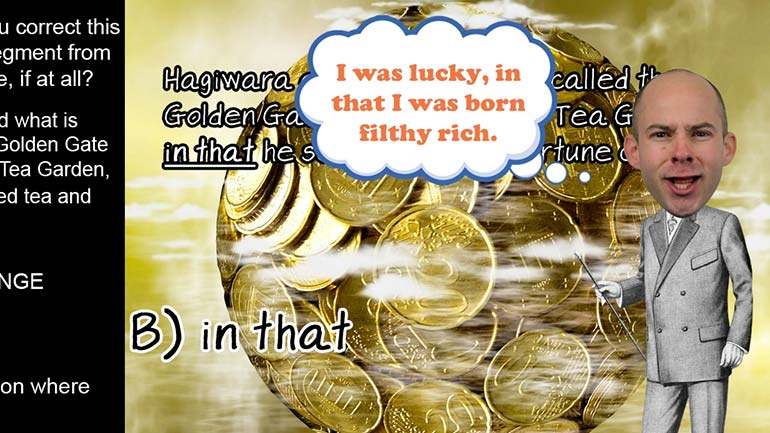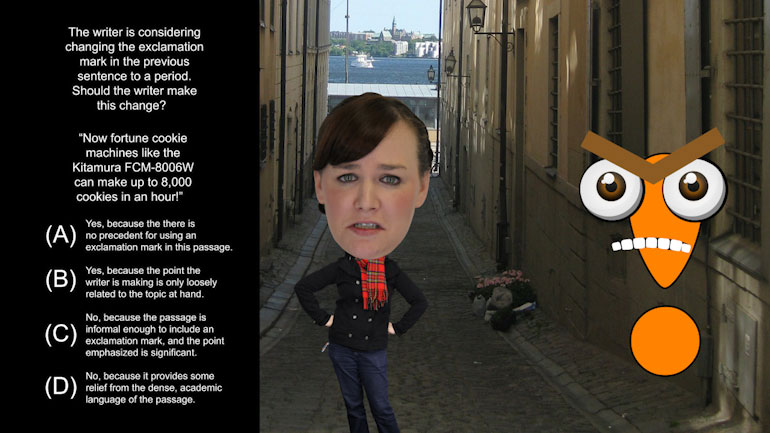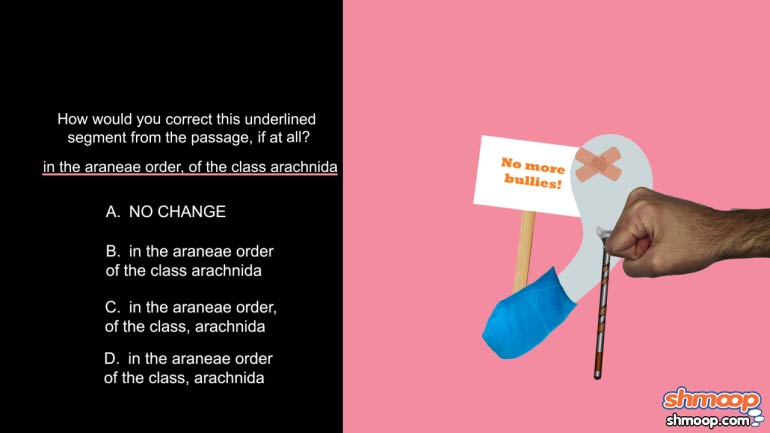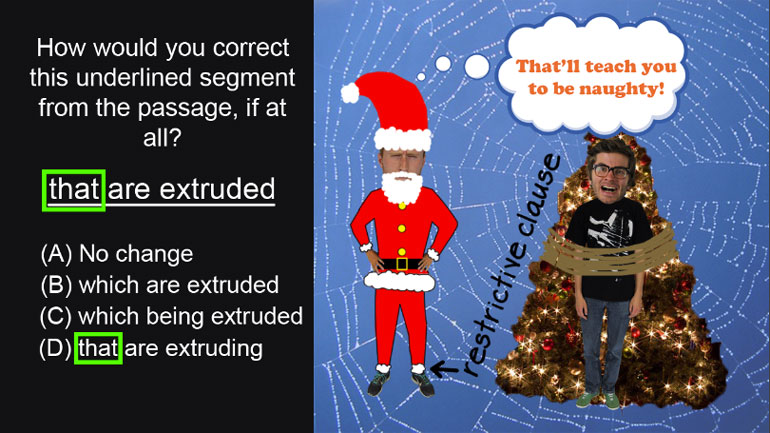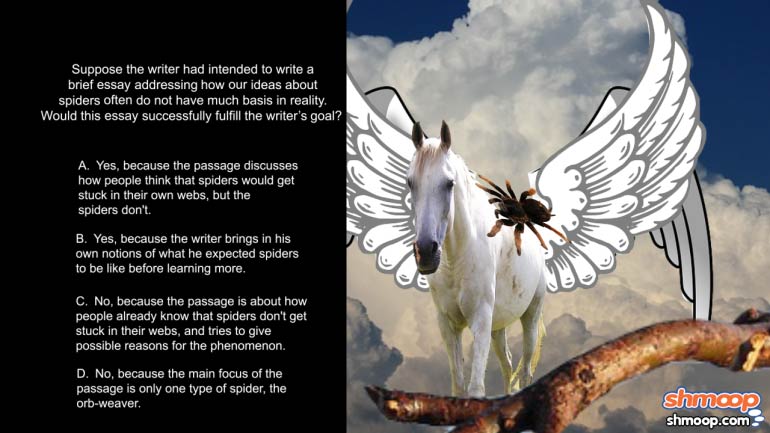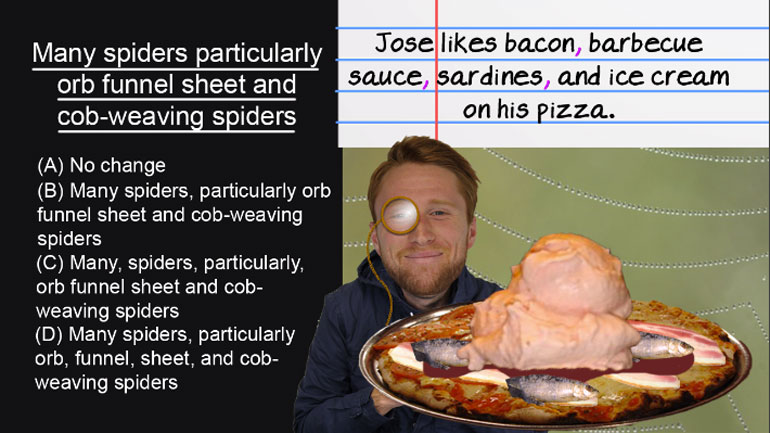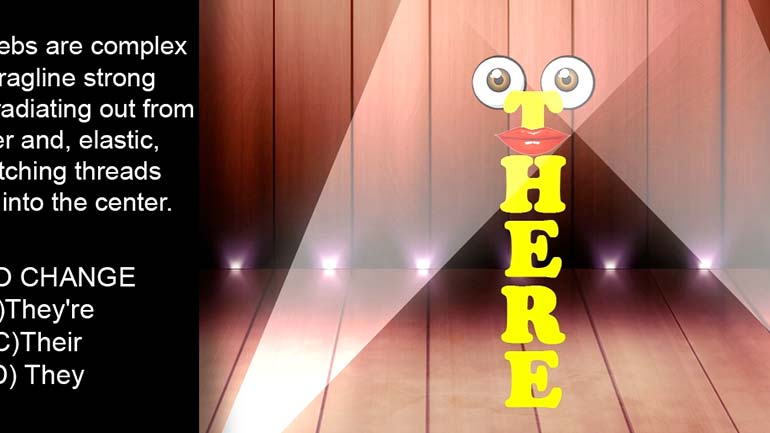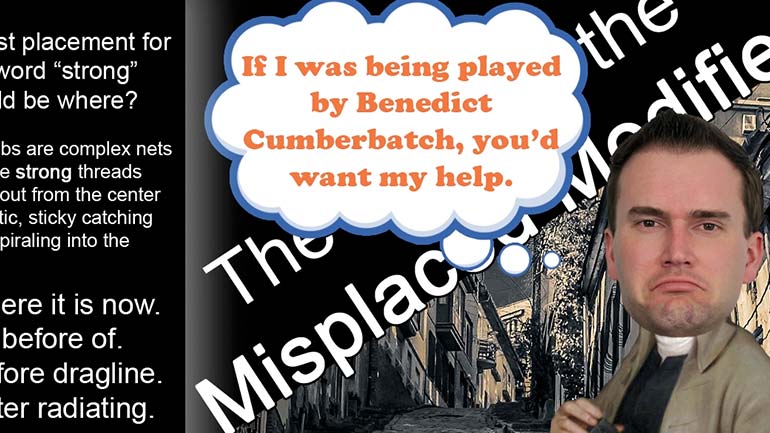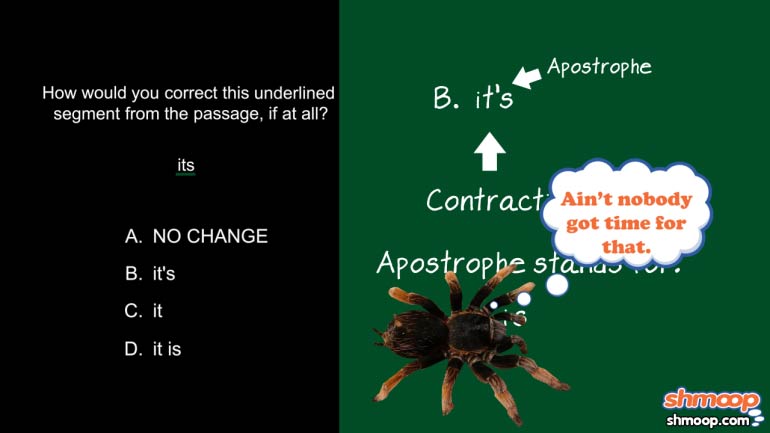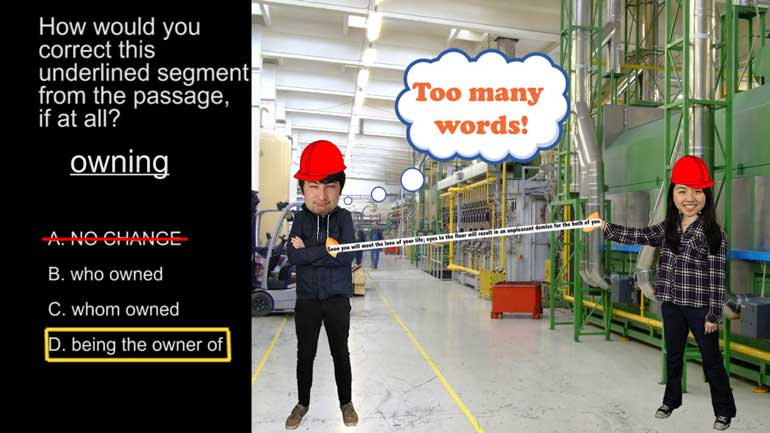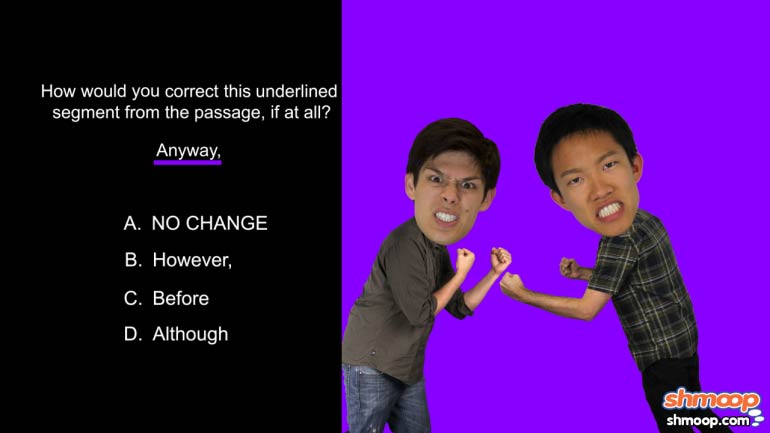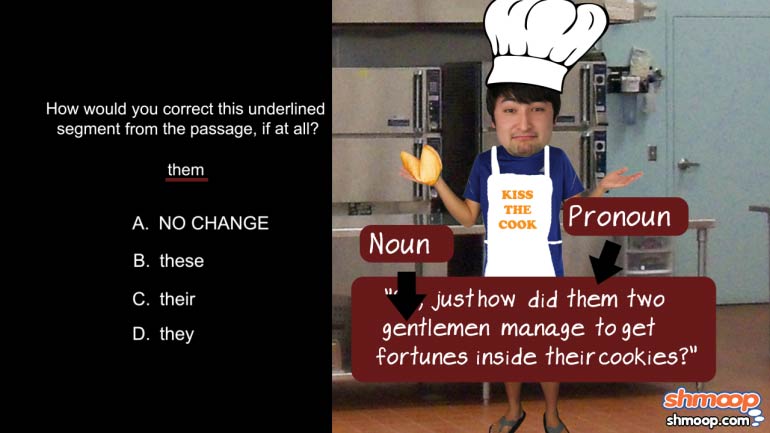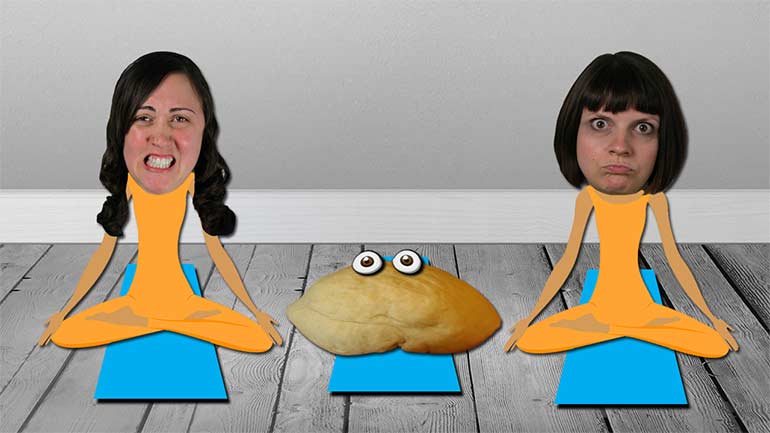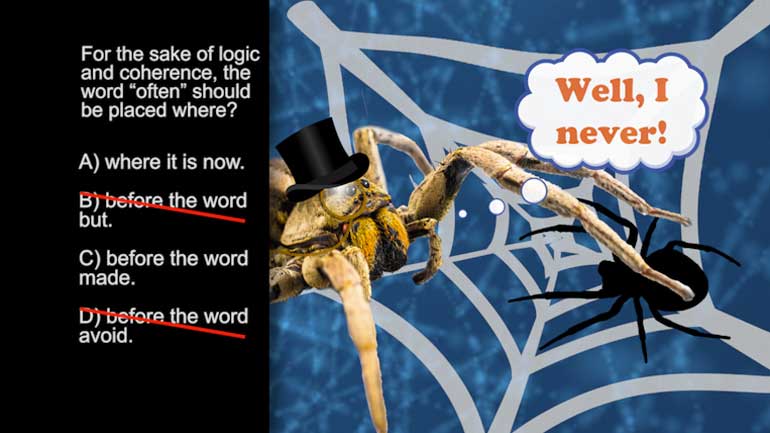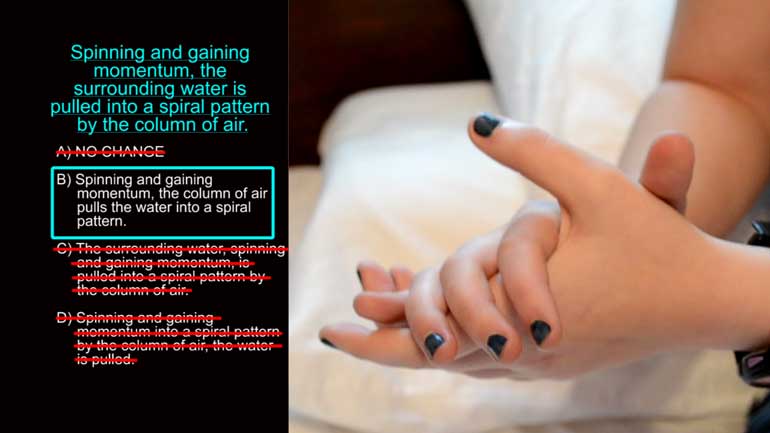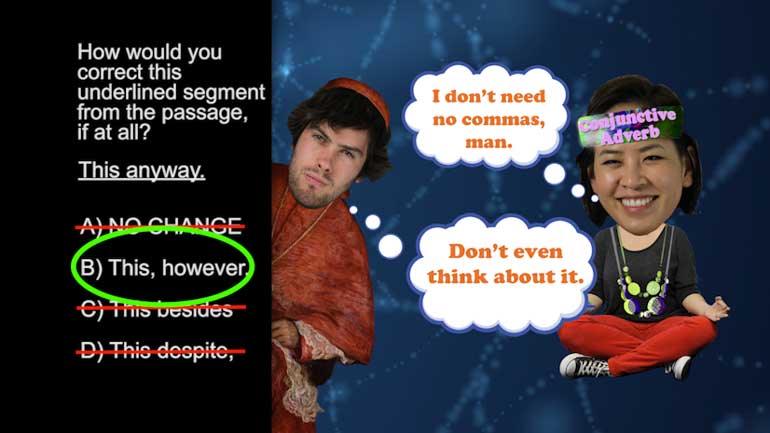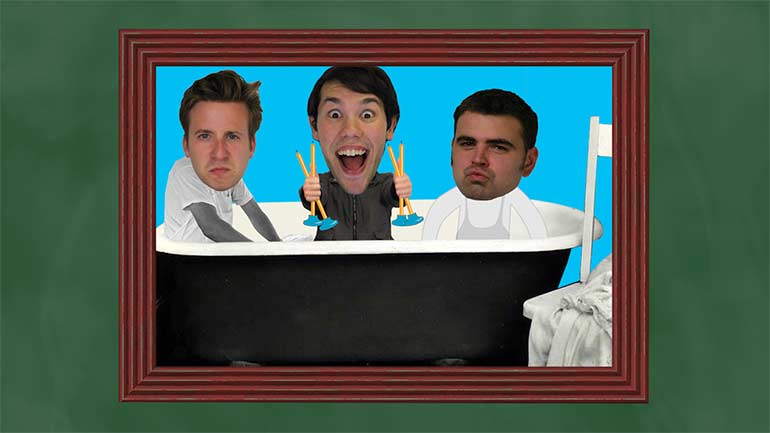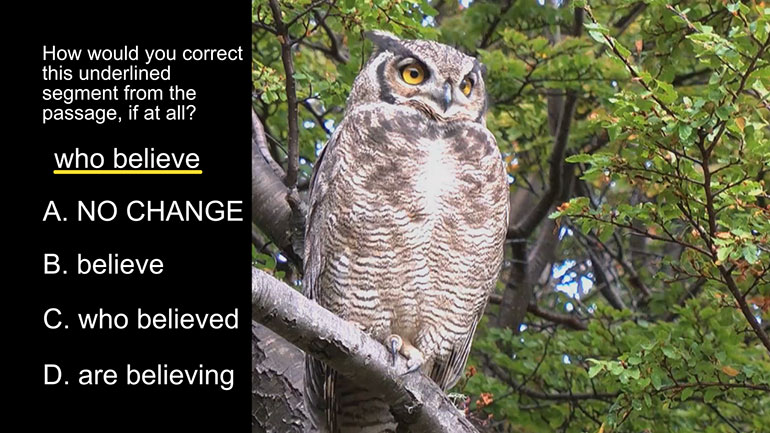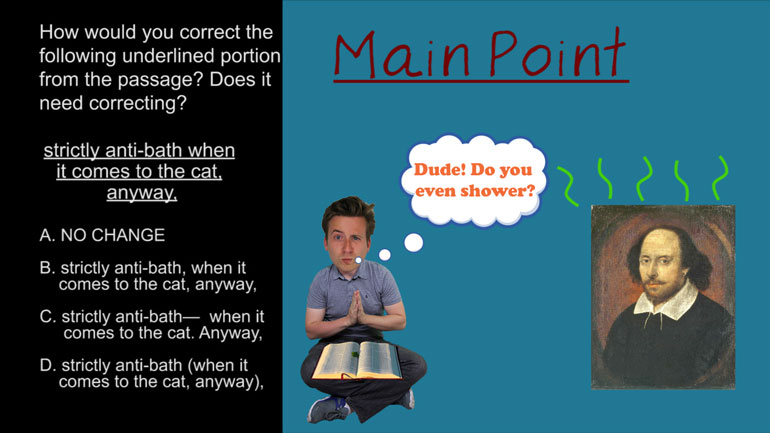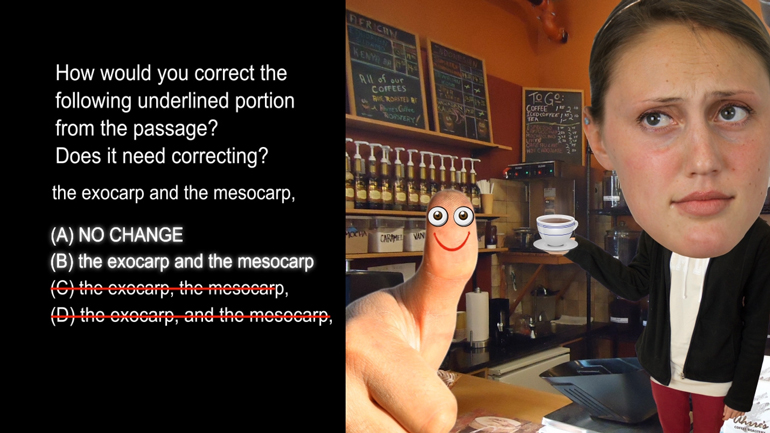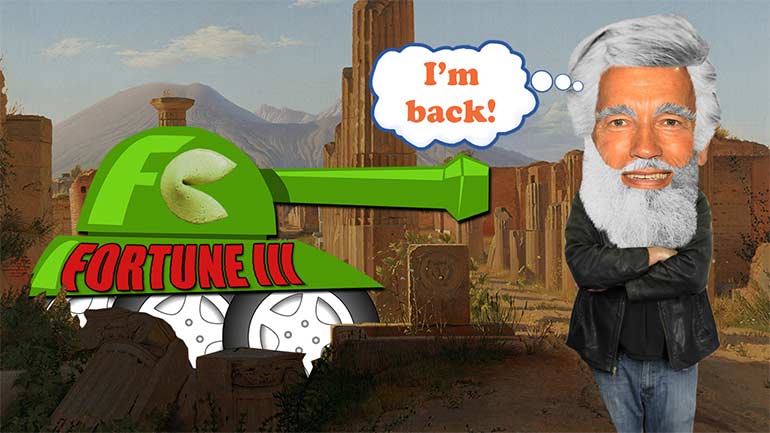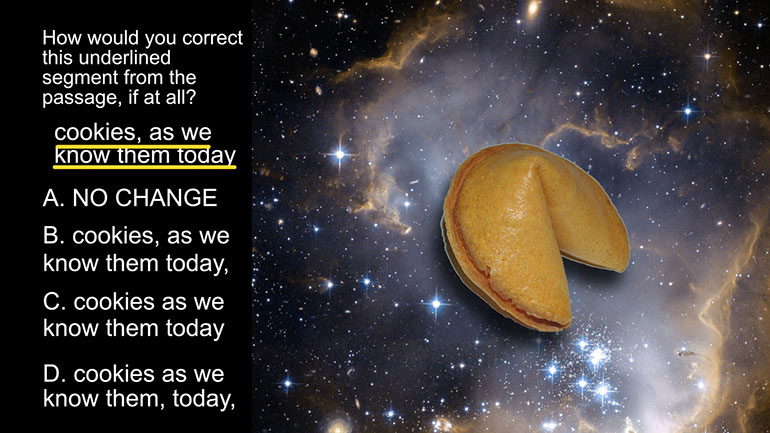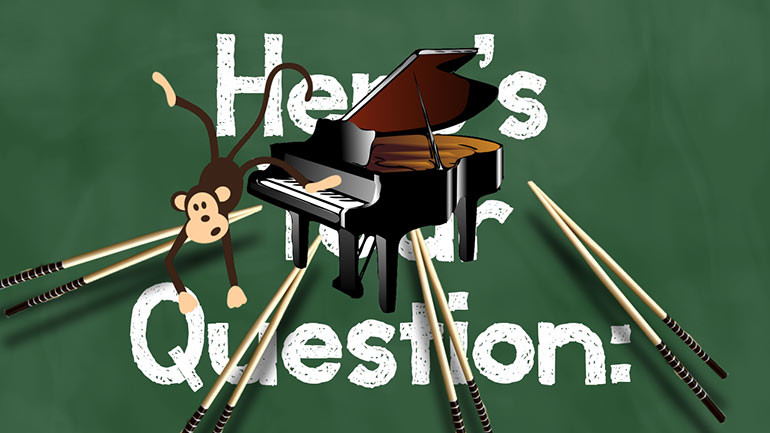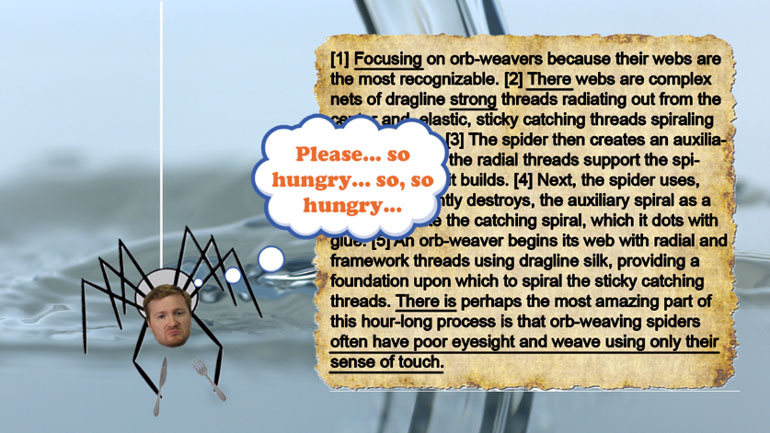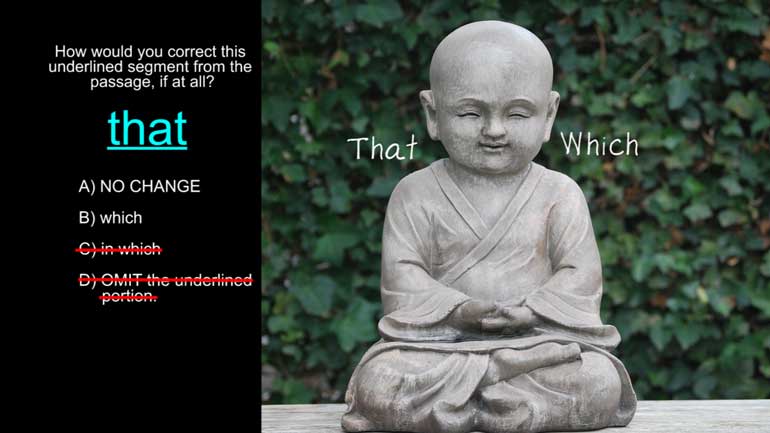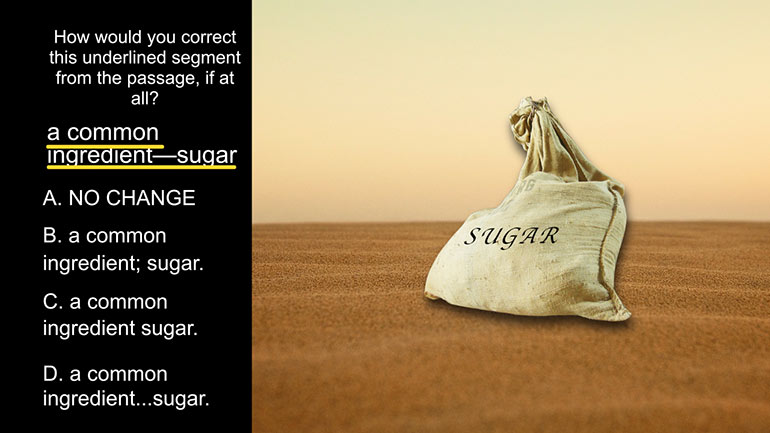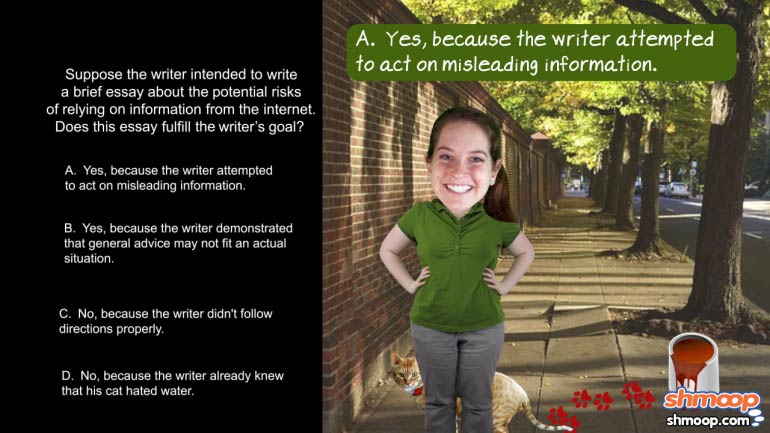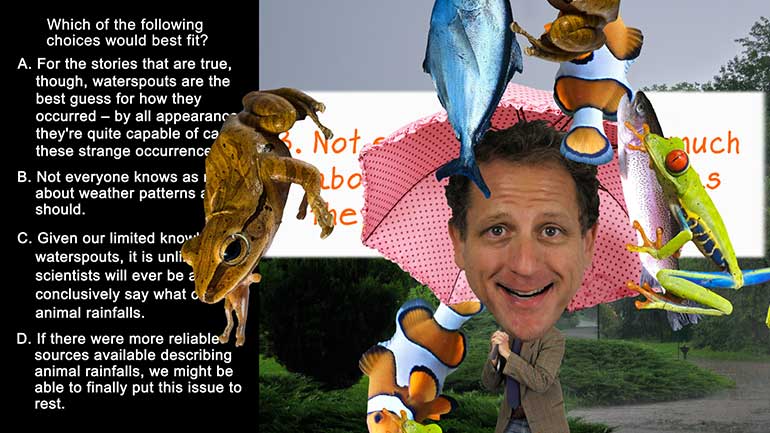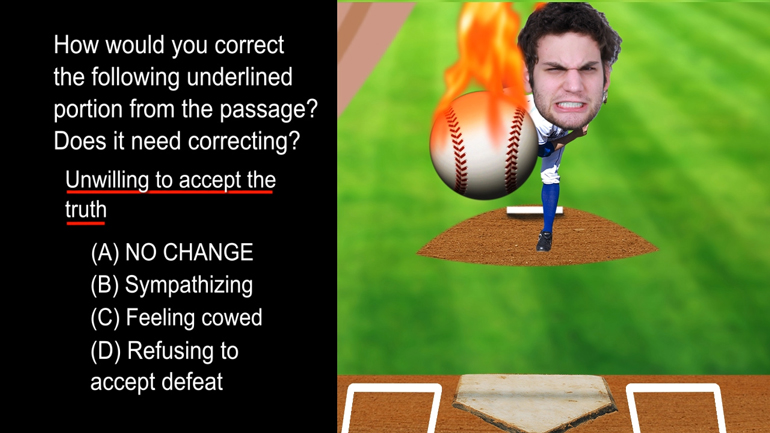ShmoopTube
Where Monty Python meets your 10th grade teacher.
Search Thousands of Shmoop Videos
Passage Drill Videos 75 videos
ACT English: Passage Drill Drill 2, Problem 6. Which verb best matches the subject's emotional state?
ACT English: Passage Drill Drill 2, Problem 1. What is the correct tense for the underlined portion?
ACT English: Passage Drill Drill 2, Problem 7. Which pronouns properly convey the meaning of the sentence?
ACT English 4.13 Passage Drill 178 Views
Share It!
Description:
ACT English: Passage Drill 4, Problem 13. What punctuation mark, if any, best precedes "sugar" in this sentence?
Transcript
- 00:03
Here’s your Shmoop du jour, brought to you by common ingredients.
- 00:07
Sorry, we couldn’t come up with something fancier.
- 00:26
How would you correct this underlined segment from the passage, if at all?
- 00:31
a common ingredient—sugar?
- 00:34
And here are the potential answers...
Full Transcript
- 00:40
In the original sentence, the writer uses an em dash to put some distance between “sugar”
- 00:46
and the rest of the sentence.
- 00:47
Hm, maybe the writer thinks the sentence needs to cut back on sweets.
- 00:50
In any case, this choice looks pretty good to us, but we’ll go through the rest of
- 00:54
the options just to be on the safe side.
- 00:57
No doubt, choice (B) is incorrect.
- 00:58
Semicolons are used to connect independent clauses, meaning clauses that can stand on
- 01:02
their own because they have a subject and verb.
- 01:05
The noun “sugar” just can’t make it alone, so we’re taking (B) out of consideration.
- 01:10
Option (C) doesn’t work either.
- 01:12
With the way this sentence is structured, some kind of punctuation is needed to set “sugar”
- 01:16
apart, while still connecting the noun to the sentence in a way that’s grammatically correct.
- 01:21
(D) sets “sugar” apart with an ellipsis.
- 01:24
It’s a fun idea, but it doesn’t fly grammatically.
- 01:27
Ellipses are usually used to show an omission of some kind. If we’re quoting something
- 01:32
and want to leave a bit out, we stick a “dot dot dot” in there to stand in for the part we’re omitting.
- 01:38
Ellipses are also used when writing dialogue, where they show that someone’s thoughts trail off.
- 01:42
It reminds us of the time...
- 01:45
Sorry, our brains wondered a bit there.
- 01:48
We gave the other options a shot, but choice (A) gets it right by using the em dash
- 01:51
to emphasize the noun “sugar.”
- 01:54
On a personal note....
- 01:55
Not only is (A), "no change," the correct answer, it was also the fortune that came
- 01:59
with our Kung Pao Beef right before we lost every last cent playing a game of piggy-bank
- 02:03
catch while standing over a subway grate.
- 02:06
Eerie.
Related Videos
ACT English: Punctuation Drill 2, Problem 2. Where should the semi-colon be placed?
ACT English: Punctuation Drill 3, Problem 1. How should this sentence be changed so that it is grammatically correct?
ACT English: Punctuation Drill 3, Problem 2. How should we properly hyphenate the words in this sentence?
ACT English: Punctuation Drill 3, Problem 4. Which choice best formats this list of items?
ACT English: Punctuation Drill 2, Problem 1. Which choice of punctuation best completes the sentence?
